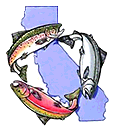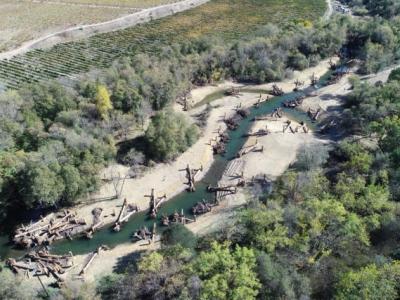Data, Planning and Actions for Watershed Resiliency: Fires, Floods and Climate Change
Session Chair:
Karen Gaffney, Sonoma County Ag + Open Space
In the last five years, California has experienced some of the largest and most damaging fires in history, with substantial impacts to human communities, forests, stream ecosystems and local economies. This session will explore opportunities to enhance watershed resiliency to fires, floods and extreme events exacerbated by climate change. Presenters will discuss data, analysis, and planning efforts to achieve multi-benefit outcomes on the ground. The session will cover landscape scale analysis of forest quality, hydrologic and geomorphic processes, fuel loading, and carbon sequestration, and will outline how these data are used to target interventions that reduce impacts to human health and safety while protecting and enhancing sensitive ecosystems and supporting local jobs and revenue.
Mapping Riparian Areas for Long-Term Riparian Corridor Conservation & Resiliency to Extreme Events
Karen Gaffney and Allison Schichtel, Sonoma County Ag + Open Space
Effects of the Thomas Fire on Oncorhynchus mykiss and stream communities of the Los Padres National Forest
Kristie Klose, PhD, Forest Fisheries Biologist, Los Padres National Forest
Report From A Russian River Field Station In The Heart Of The 2017 Wildfire Zone: Pepperwood's Integrated Approach To Evaluating And Advancing Watershed Resilience
Lisa Micheli, PhD, and Toshe Comendante, PhD, Pepperwood Preserve
Spatial Analysis and Forest Canopy Damage Modeling - The 2017 North Bay Fires
Mark Tukman, Tukman Geospatial
After the Planning Ends; Advancing Objectives of the Fire and Flow Strategic Planning
Stacie Fejtek Smith, D.Env, NOAA Restoration Center
Fisheries Restoration in the Era of Megafires: How Can Fish Habitat Restoration Account for the Fire Next Time?
Will Harling, Director, Mid Klamath Watershed Council

